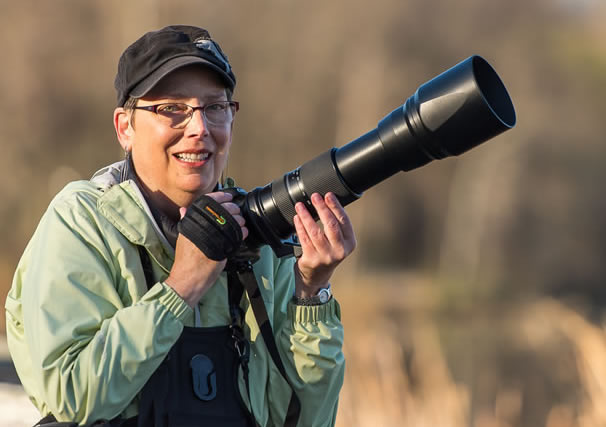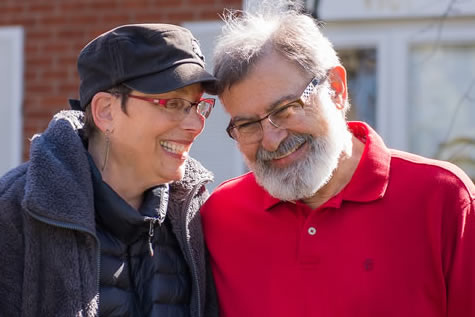One Doctor, Five Minutes, New Life

Photo Credit: Edda Pacifico
How an immediate connection with her medical oncologist changed one patient's outlook on treatment and life
"I'll give her just five minutes," vowed Madeline P. of West Bloomfield as Sofia Merajver, M.D., Ph.D., walked into the exam room in 2000. After two bouts of breast cancer with an ulcerative colitis diagnosis in between, she didn't feel emotionally or physically equipped to handle more treatment.
Looking back, Madeline, 67, says she wouldn't be alive today without the care of her University of Michigan Rogel Cancer Center medical oncologist.
"I truly marvel that it all boiled down to the first five minutes we met. She made a lightning-fast appraisal of my hot buttons and managed to push them all in those five minutes in an appeal for me to have chemo. Dr. Merajver convinced me that I had nothing to lose and everything to gain, so instead of saying no, I found myself agreeing to it."
Today, when Madeline isn't lugging a camera into fields, woodlands or swamps and setting up for hours of wildlife photography, she's organizing photos, prepping equipment and planning her next outing. She also enjoys traveling with her husband, John.
"It's a good thing John has taken over cooking and some other household chores because my years of cancer treatment have given me a new set of priorities," she says.
A Turn in Health

Photo Credit: Edda Pacifico
Madeline's good health changed in the 1990s. She underwent a double mastectomy for breast cancer (removing the second breast was a preventive decision) and a preventive hysterectomy. In 1995, she became the first woman in Michigan to test positive for the BRCA gene, the now well-known biomarker pointing to a high risk for breast and other cancers. Over the next five years, she dealt with the exhausting effects of ulcerative colitis and the side effects from treating it.
Nearly nine years after her mastectomy, Madeline's breast cancer returned.
"There really wasn't much left to take off except chest tissue, so we went ahead and did that, following up with a month of radiation therapy," she said. "I was physically and emotionally depleted by the time radiation therapy was done, but I agreed to have my colon removed," which was necessary for her ulcerative colitis.
This cleared the way for the last step in Madeline's cancer treatment plan: chemotherapy. Madeline admits that she was ready to spurn chemotherapy and all that came with it: more fatigue, more nausea, more medical appointments. But she agreed to meet with Merajver. In five minutes, her outlook changed completely.
Communication Counts
"Communication with the patient and family is at the heart of the relationship between the patient, her family or friends, and the doctor," Merajver says. "Nothing supplants the bond that forms when the patient knows her doctor is watching out for her health and for her life. As a doctor, you must convey that commitment with words and actions forever."
Six months of chemo had its ups and downs but Merajver closely monitored Madeline's tolerance for the infusions. Madeline found her to be an active listener. If Madeline was discouraged by how she felt, Merajver adjusted the dosages to help her feel better during the process.
"These conversations didn't last long, but Dr. Merajver was always available, always comforting me," says Madeline. "Not once did I regret saying yes to her about chemo."
Madeline placed her full trust in the oncologist and that included trusting Merajver to respect her comfort zone when discussing treatment and making recommendations.
"You cannot promise a certain length or even for sure a certain quality of life, but what I promise is to always accompany them and try to maximize both, to be by their side intellectually and emotionally and also often physically when the patient is in the office or ill in the hospital or in hospice at home or anywhere in the world on vacation and they need your help or have a question," Merajver says.
Fifteen years later, Madeline sees Merajver for an annual checkup and always thanks her for another chance to live.
Visit the American Cancer Society's web site for helpful questions to ask your doctor.
Read the Summer, 2015 issue of Thrive.
